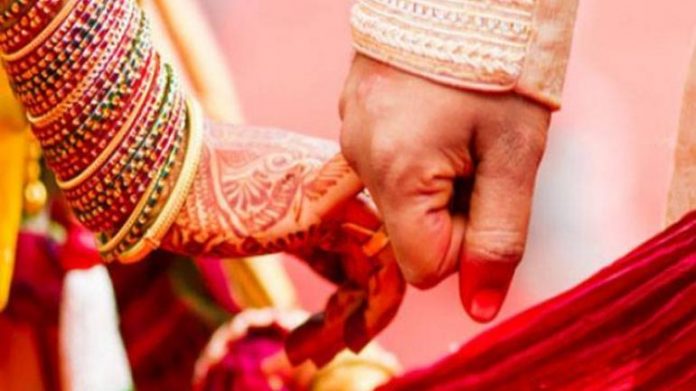This article has been written by Sharanya Ghosh of Symbiosis Law School, NOIDA, and explores the latest precedent set in the context of divorce in Hindu Law based on irretrievable breakdown of a marriage.
Introduction
The irretrievable breakdown of a marriage is a ground on which a decree of divorce has been allowed often. The Supreme Court has granted such dissolutions of marriages by exercising powers under Article 142 of the Constitution of India. In the following case, however, the Hon’ble Court did not have any ground in law based on which it could have granted such a decree. What was the decision made by the Court?
Background facts
The marriage between the appellant and the respondent had taken place on 09.05.1993. They had a son who was born on 29.08.1995. According to the husband, there were certain differences between him and the respondent and he claimed to have suffered mental cruelty. Moreover, until 1997, the wife also went and stayed at her parental house several times. Following this, the husband filed for a divorce in 1999 before the Family Court at Hyderabad under Sections 13(1)(ia) and (ib) of the Hindu Marriage Act, 1955. The appeal before the Family Court was made on the ground of cruelty which the husband failed to prove. The court also denied the decree of divorce on the ground of irretrievable breakdown of marriage.
Following this, the aggrieved husband appellant moved to appeal before the High Court, again, on the ground of irretrievable breakdown of the marriage. The High Court of Andhra Pradesh in 2012 confirmed the decision of the Family Court and dismissed the appeal made by the husband in the given matter following which an appeal was brought before the Supreme Court.
The facts presented before the Supreme Court of India were that the husband and wife were not residing together and that this was the case for over 22 years. It was expressed on behalf of the appellant-husband that it was a situation of irretrievable breakdown of marriage and that the Supreme Court must do justice to both parties, by invoking the powers under Article 142 of the Constitution of India. However, in cases of irretrievable breakdown of marriage, if either of the parties is not willing to dissolve, a decree of divorce cannot be granted.
The Hon’ble Supreme Court passed a judgement based on these facts.
Another important fact to be noted here is that irretrievable breakdown of marriage is not recognised as a ground for divorce under any law. It has been accepted as a ground-based on precedents and is not mentioned in the actual Hindu Marriage Act, 1955.
Issues
- Whether it is a case of irretrievable breakdown of marriage.
In case of an irretrievable breakdown of marriage, the spouses are no longer willing to live with each other thereby destroying their relationship of being husband and wife. In other words, irretrievable breakdown of marriage could be interpreted in several ways, such as residing separately and so on. However, it was earlier understood by the Court that for a marriage to be considered irretrievably broken down, there shall be a consent of both the parties, which is missing in the given case.
How can a marriage be broken down irretrievably if one of the parties is still willing to continue the relationship? This brings us to the next issue.
- Whether a decree of divorce may be granted despite one of the parties being unwilling.
In the case of irretrievable breakdown of marriage, it had been decided in the Hitesh Bhatnagar vs Deepa Bhatnagar case of 2011 that both the husband and the wife must consent to and show a willingness to the dissolution. However, in such a situation as the given case, can a decree of divorce be granted even if one of the parties is not willing to consent to the dissolution?
Arguments and Proceedings
The first appeal for a decree of divorce was filed by the appellant-husband in the year 1999 before the Family Court of Hyderabad. Following the failure of the husband to prove that cruelty had been inflicted on him by the respondent-wife, the appeal had been dismissed. An appeal before the High Court by the husband was brought once again on the ground of cruelty and an irretrievable breakdown of marriage. However, the High Court of Andhra Pradesh only confirmed the decision taken by the lower court and dismissed the appeal.
The appellant-husband then filed for an appeal before the Supreme Court of India, seeking a decree for divorce on the ground of irretrievable breakdown of marriage alone.
Sri Guru Krishna Kumar, the Learned Senior Advocate put forth the argument that the appellant husband and the respondent wife had been living separately for 22 years. He further expressed that the marriage was broken beyond repair and that the marriage should be dissolved on the ground of irretrievable breakdown of marriage in exercise of the powers of the Supreme Court under Article 142 of the Indian Constitution. He also expressed the appellant husband’s willingness to pay the respondent-wife a lump sum amount in the case that the decree of divorce was granted.
The learned Advocate, Shri Jayant Kumar, on the behalf of the respondent-wife, however, said that a decree of divorce could not be granted on the ground of an irretrievable breakdown of marriage if one of the parties was not consenting or was not willing.
There were several cases cited by the learned Counsels for both parties. These arguments on behalf of both the parties in the Supreme Court were supported heavily by the following two cases:
Naveen Kohli vs Neelu Kohli (2006) 4 SCC 558: The facts of the case would be that the appellant and respondent were a married couple and that the husband filed for a decree of divorce based on several grounds. The divorce had been granted by the Supreme Court after observing the fact that the marriage had, in fact, broken down irretrievably. The Supreme Court also suggested in this case that the Hindu Marriage Act 1955 be amended to include the ground of irretrievable breakdown of marriage.
Based on this judgement, the Learned Senior Advocate on behalf of the husband appellant argued that the marriage in question had clearly been irretrievably damaged and had completely broken down, specifically revolving around the fact that the appellant-husband and respondent-wife had been living separately for 22 years.
Hitesh Bhatnagar vs Deepa Bhatnagar (2011) 5 SCC 234: In this case, the husband and wife had both applied for divorce. However, the wife withdrew her consent before the decree of divorce could be granted due to which it was not allowed by the lower court. When the matter reached the Supreme Court, the appeal for the decree of divorce was dismissed. This was because the respondent-wife in her statements expressed that she did not want a divorce and believed in her marriage. Due to this, the marriage could not have been considered to have irretrievably broken down.
From this case, it becomes clear that even in the case that a marriage may be broken down, a decree of divorce cannot be granted on the ground of irretrievable breakdown of marriage unless both the parties consent to it. The decree of divorce was thus not granted.
It was on the basis of this judgement that the learned Counsel for the respondent wife put forth the argument that the marriage in question should not be dissolved on the ground of irretrievable breakdown of marriage since the respondent wife does not consent to the same.
Judgment
The Hon’ble Supreme Court allowed the application of divorce by the appellant-husband. Although there was no ground in law to support the divorce, it appeared that the appellant and respondent were only married in name. In other words, their marriage was dead and only had a legal meaning. This was proved by the fact that they had been living separately for 22 years and that any attempt at saving their marriage had failed. Taking this into account, the marriage can be seen as having irrevocably broken down.
The Hon’ble Supreme Court in an earlier judgement had stated that a decree of divorce may only be granted if both the parties are willing to dissolve the marriage and are consenting to it. The given case, however, makes it clear that in some situations, the marriage between two individuals may exist only in a legal form. Although the facts of the case did not provide a legal ground based on which the divorce could be granted, the Court ruled in favour of the appellant-husband. The Court allowed the application of divorce by the husband and the marriage dissolved by exercising powers under Article 142 of the Constitution of India on the condition of permanent alimony of Rs. 20 lakhs to be paid by the appellant-husband to the wife.
This is an interesting development in the context of divorces granted on the grounds of irretrievable breakdown of marriage. How can a marriage be called irretrievably broken down if one of the parties was still willing to make an effort? How is it that living separately for a long period of time can be considered as proof of a breakdown of a marriage? Several other questions may be raised to question the judgement of this case.
The Supreme Court with this judgement, however, has created a path for divorce appeals to be granted for marriages that exist only on paper and not in essence. It has been described as “the recognition of the futility of a completely failed marriage being continued only on paper…” in the judgement of Munish Kakkar vs Nidhi Kakkar (2019) INSC 1065.
The grant of the decree of divorce in this appeal is thus in view of the larger picture of securing the rights of the individuals involved. Article 142 of the Constitution of India empowers the Supreme Court to take such decisions and it is certain that this case will be considered as a landmark case for several future cases. One such case, as mentioned above, is Munish Kakkar vs Nidhi Kakkar (2019) INSC 1065, wherein the Court further expressed that a dead letter marriage only created a strenuous relationship between the spouses. The judgement cites the case of R Srinivas Kumar vs R Shametha and further expresses the words of the Court and their intentions. The judgement for the same further stated:
“We do believe that not only is the continuity of this marriage fruitless, but it is causing further emotional trauma and disturbance to both the parties… The sooner this comes to an end, the better it would be, for both the parties. Our only hope is that with the end of these proceedings, which culminate in divorce between the parties, the two sides would see the senselessness of continuing other legal proceedings and make an endeavour to even bring those to an end.”
The above lines from the December 2019 judgement further clarify the intentions of the Supreme Court and the reasoning in their judgement in the case of R Srinivas Kumar vs R Shametha. The decision of the above case was influenced by the same principles of ending a dead letter relationship.
Thus, even though the irretrievable breakdown of a marriage is not recognised by a particular law as a ground for divorce, it is still an important aspect as has been established in precedent. Similarly, although the grant of the decree of divorce on the ground of irretrievable breakdown of marriage despite the absence of consent of both parties is not governed by any law, it is an important precedent for future cases.
Conclusion
The above decision is a new precedent set in the context of divorce under Hindu Law. The Supreme Court passed this judgement despite the fact that the Hindu Marriage Act, 1955 does not recognise irretrievable breakdown in marriage as a ground for divorce. It would be interesting to see how this decision affects future divorce cases. Find the full judgement here.
References
LawSikho has created a telegram group for exchanging legal knowledge, referrals and various opportunities. You can click on this link and join:
 Serato DJ Crack 2025Serato DJ PRO Crack
Serato DJ Crack 2025Serato DJ PRO Crack











 Allow notifications
Allow notifications


